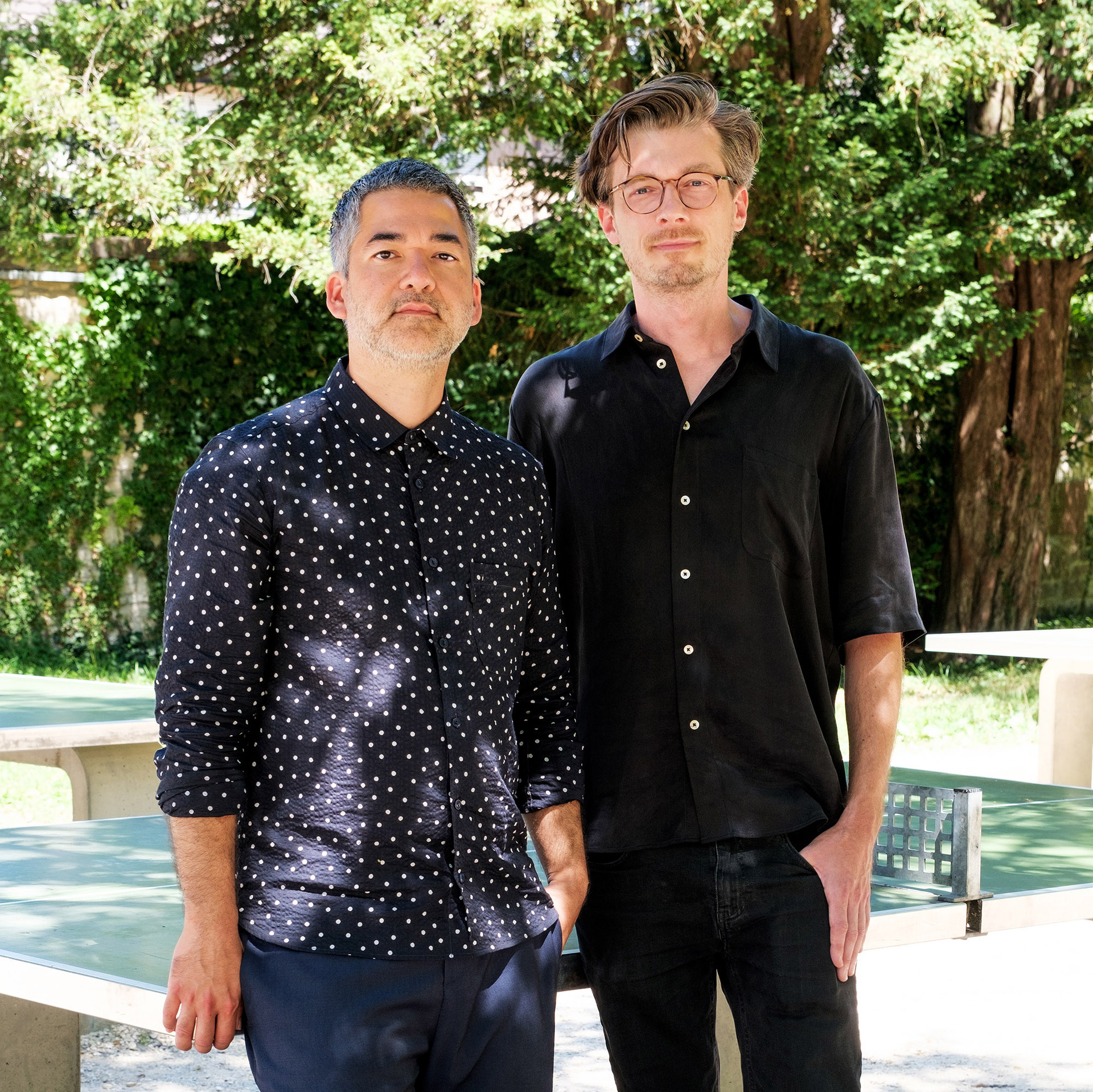New at the faculty - Christian Weyell / Kai Zipse

The architecture firm Weyell Zipse was founded by Christian Weyell and Kai Zipse in Basel in 2015. Both partners were active in teaching at ETH Zurich and are guest professors of the Wüstenrot Foundation at the Karlsruhe Institute of Technology in the summer semester of 2024. The office was nominated for the Swiss Art Award 2021, for the DAM Prize 2024 and received the Best architects 24 award in gold. Weyell Zipse's work will be presented in the Japan Swiss Architectural Association's group exhibition 'A New Age of Methodologies' in Tokyo in 2024.
Christian Weyell is an architect and urban planner. He studied at ETH Zurich and TU Darmstadt and graduated in 2008. After his studies, he worked at HHF Architekten in Basel until 2012. From 2012 to 2018, he was an assistant to Prof. Kees Christiaanse at the Chair of Architecture and Urban Design at ETH Zurich and worked as part of a transdisciplinary team on the Zernez Energia 2020 research project.
Kai Zipse studied at TU Darmstadt, the University of Tokyo and the Berlin University of the Arts. From 2015 to 2020, he taught at ETH Zurich under the professorship of Adam Caruso. During his studies, he completed internships at SANAA and Kengo Kuma Architects in Tokyo and Meili Peter Architekten in Zurich. After graduating in 2008, he worked for Graber Pulver Architects in Zurich, Caruso St John Architects in London and Miller & Maranta Architects in Basel.
Statement
Architecture is a cultural discipline that shapes our built environment. First and foremost, it should improve the quality of life as such. But it also has the potential for more. Abstract ideas, memories of places, constructive logic or political and social conditions are the starting point of our work.
Architecture never begins on a blank page. It is embedded in a context of place, history, people, program. A good project synthesizes the diverse conditions that surround each task. It discovers potential and offers new perspectives. It creates spaces for possibilities. It works with the environment and not against it. It engages with the beauty of daily life and human encounters.
We want to design robust spatial structures that adapt to different mutations of use. We believe in strong ideas, but not in dogmatism. There are no universally true answers, because every situation is specific. To find good solutions, you have to ask the right questions. We always want to stay curious and never stop learning.
Selection of projects that have been realized or are currently being realized:
- Cooperative residential and commercial building Westfeld, Basel, 2022-2027
- Expansion of the Binningen village school campus, school complex, kindergarten and sports hall, Binningen, 2017-2027
- Espenhof West, Espenhof West retirement home, Zurich, 2020-2026
- Guggach III school complex with double sports hall, Zurich, 2018-2024
- Guggach family garden club, Zurich, 2022
- House E, residential building in Premantura, Croatia, 2017-2022
- House P, residential building in Stralsund, 2016-2021
- Manabar, center for play culture, Basel, 2018
- Urban planning framework and development plan Neue Mitte Grenzach, 2017-
After Dijana Vučinić, Vesna Jovanović, Madeleine Kessler and Céline Baumann, Christian Weyell and Kai Zipse hold the fifth guest professorship of the Wüstenrot Foundation at the KIT Faculty of Architecture. The guest professorships complement the courses offered by the Master's degree program in Architecture for one semester each by making relevant and responsible contributions to the major social challenges facing building in the present and future.
They address issues of climate change and its ecological and socio-economic consequences for the built environment, the energy transition with regard to the refurbishment of existing buildings and building culture, the scarcity of resources and the circular economy, digitalization and its opportunities for new building production, but also issues of rapid global urbanization, advancing demographic and employment-related change and its effects on the planning of new living environments and spaces.
